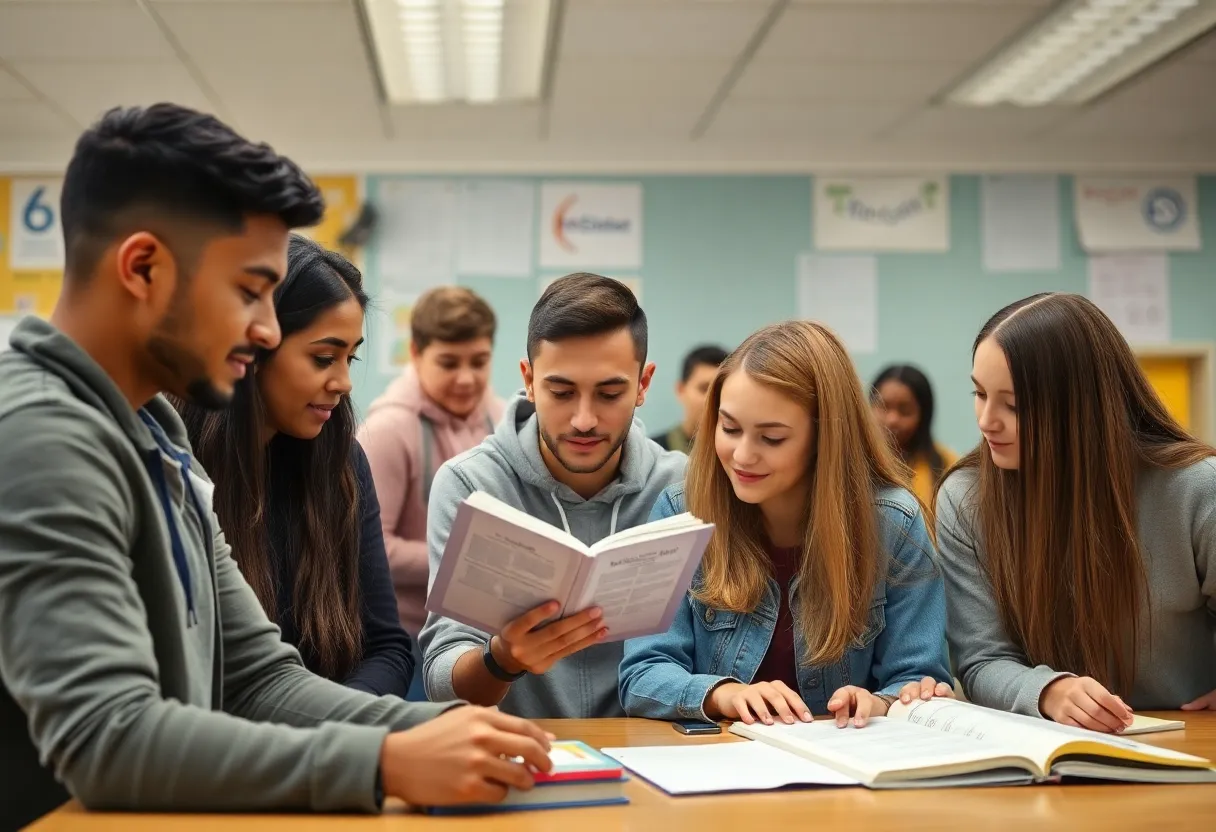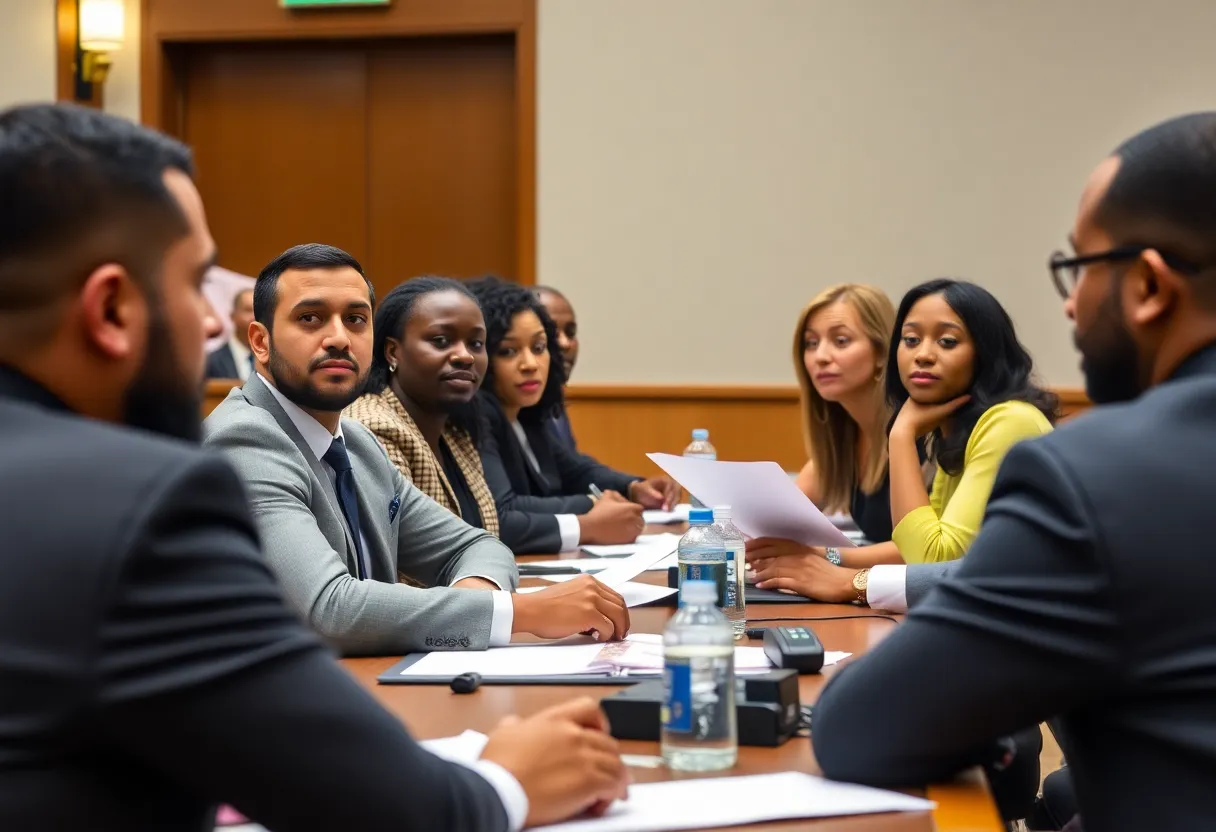News Summary
The Ampa Group has appointed Justine Ball and James Woolstenhulme as co-heads of its Birmingham office, signaling a robust commitment to the West Midlands. Their focus on nurturing local talent and sustainable growth reflects the company’s strategic vision for community engagement and corporate responsibility. With a strong workforce of over 575 employees in Birmingham, the leadership transition aims to strengthen client relationships and promote innovation in the region’s growing legal sector.
Birmingham Welcomes New Leadership at Ampa Group
Birmingham, the heart of the West Midlands, is buzzing with excitement as the Ampa Group has just announced that Justine Ball has been appointed as the co-head of its Birmingham office. She will be joining forces with James Woolstenhulme, who leads the dispute resolution team. This dynamic duo is set to take the reins at the largest hub of the Ampa Group, marking a significant investment in the region’s growth.
Investing in the Future
The appointment of Justine and James is more than just a simple change; it symbolizes Ampa’s long-term commitment to the West Midlands. With over 575 employees based in Birmingham, the office is already a bustling center of activity for the Ampa Group, which boasts a workforce of over 1,400 people across 22 locations in the UK.
Justine’s journey in law began right in Birmingham at Shakespeare Martineau, where she started as a trainee in 2011. Fast forward to today, and she finds herself in a pivotal role, emphasizing the rich history of Birmingham while also promising to tap into the immense potential the city has for future growth. Her focus will be to nurture local talent and build connections that foster further development within the Birmingham office.
Building Local Talent
The role of leaders in driving success cannot be overstated, and both Justine and James understand this well. Their leadership will center around championing local talent, which is crucial for maintaining strong client relationships. They aim to strengthen the Birmingham office’s strategic development initiatives, ensuring that both growth and community engagement remain at the forefront of their objectives.
Cultural and Community Commitment
The Birmingham office isn’t just any office; it holds a special place as the birthplace of Shakespeare Martineau. This historical significance reinforces the importance of the Birmingham branch in Ampa’s broader investment strategy. The organization believes in empowering local leaders and enabling them to leave a positive impact within the community.
In an era where corporate social responsibility is more important than ever, Ampa Group shines bright as a certified B Corporation. This certification isn’t just a badge of honor; it requires the organization to carefully consider the implications of its business decisions across a variety of stakeholders, including employees, clients, and the local community.
Strategic Focus on Sustainable Growth
The ambitious plans laid out by Justine and James include a focus on sustainable business practices, ensuring that the growth they pursue is not at the expense of the local community. It’s all about a balanced approach to achieving success that benefits everyone involved.
With brands under the Ampa umbrella including Shakespeare Martineau, Marrons, Lime Solicitors, Corclaim, and Coadax, Birmingham remains a crucial part of the group’s ecosystem. The leadership transition is set against a backdrop of growing optimism and energy in the region, making it an exciting time for all involved.
Final Thoughts
As Birmingham continues to flourish and attract attention on the national stage, the appointment of Justine Ball and James Woolstenhulme signifies a bright future for the Ampa Group. Their leadership is expected to create avenues for new opportunities, foster local talent, and propel the Birmingham office toward an even more promising horizon.
In a world where corporate responsibility and local engagement go hand in hand, this new leadership duo is aiming to make waves that resonate throughout the Birmingham community. With the support of their talented team, they are primed to ensure that the Birmingham office remains a vital player in the ever-evolving landscape of the UK’s legal and business sectors.
Deeper Dive: News & Info About This Topic
HERE Resources
ALDOT Faces Financial Strain from Guardrail Damages
Birmingham to Host 42nd Alabama State Games
Pope Leo XIV Elected as First American Pope
Aubrey Bennett Recognized as Alternate Alabama Teacher of the Year
UAB’s MHERC Chosen for EQBMED Clinical Trial Initiative
Attorney General Pam Bondi Advocates Tough Crime Policies
ServisFirst Bank Celebrates 20 Years of Excellence in Birmingham
Georgia Governor Brian Kemp Opts Out of 2026 Senate Race
Alabama Declares National Small Business Week for 2025
Governor Ivey Proclaims National Small Business Week
Additional Resources
- Colmore Business District: Power Duo to Spearhead Group’s Birmingham Office Growth
- Wikipedia: Birmingham
- The Business Desk: Law Firm Achieves B Corp Status
- Google Search: Legal Business Growth Birmingham
- Insider Media: Prominent Law Firm in Robust Financial Position

Author: STAFF HERE BIRMINGHAM WRITER
The BIRMINGHAM STAFF WRITER represents the experienced team at HEREBirmingham.com, your go-to source for actionable local news and information in Birmingham, Jefferson County, and beyond. Specializing in "news you can use," we cover essential topics like product reviews for personal and business needs, local business directories, politics, real estate trends, neighborhood insights, and state news affecting the area—with deep expertise drawn from years of dedicated reporting and strong community input, including local press releases and business updates. We deliver top reporting on high-value events such as the Sidewalk Film Festival, Sloss Music & Arts Festival, Magic City Classic, and civil rights commemorations. Our coverage extends to key organizations like the Birmingham Business Alliance and the Birmingham Civil Rights Institute, plus leading businesses in healthcare, finance, and manufacturing that power the local economy such as UAB Medicine, Regions Bank, and Encompass Health. As part of the broader HERE network, including HEREHuntsville.com, we provide comprehensive, credible insights into Alabama's dynamic landscape.





